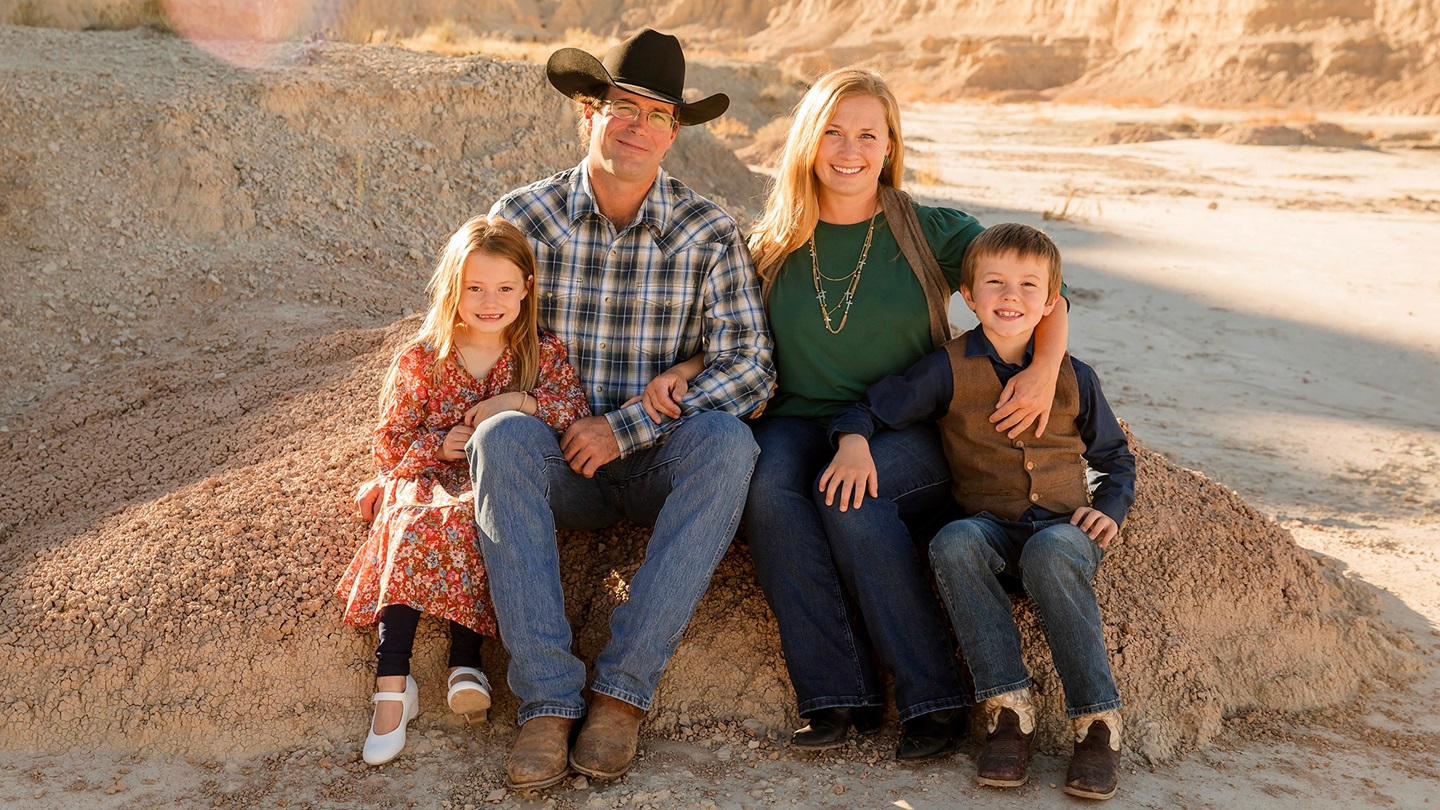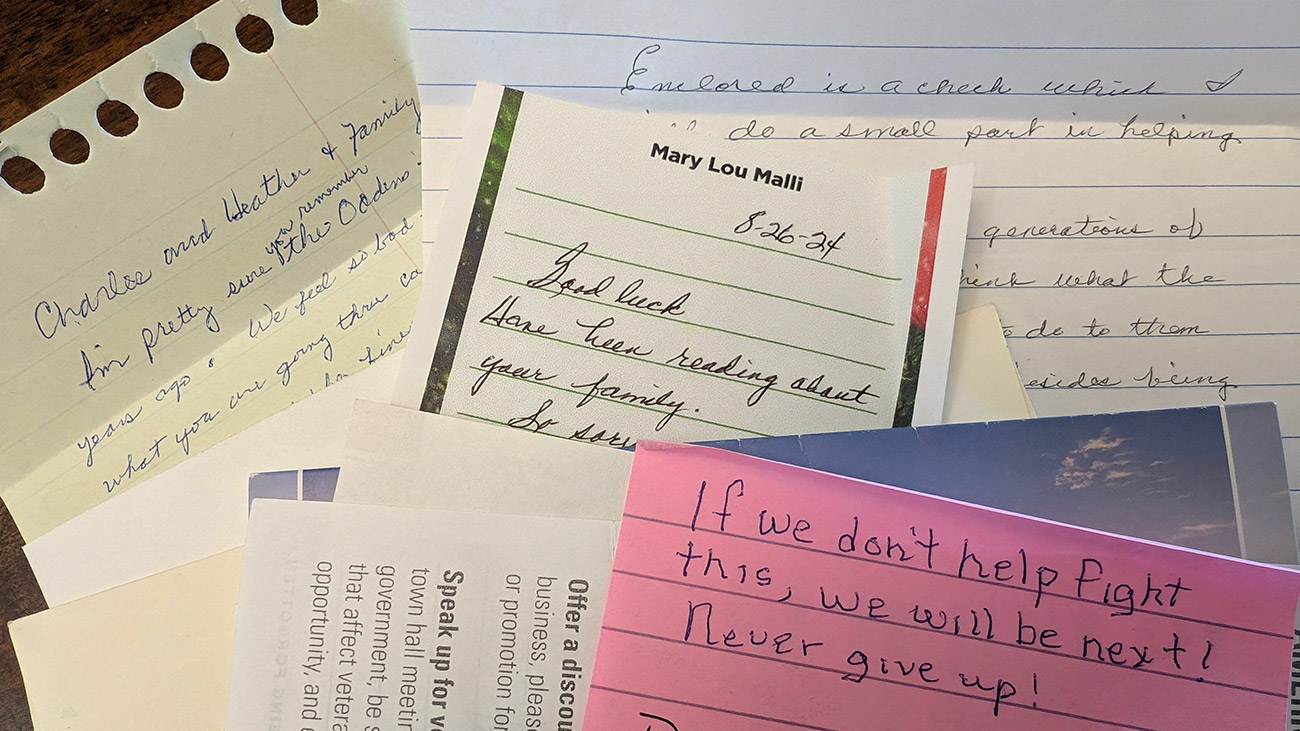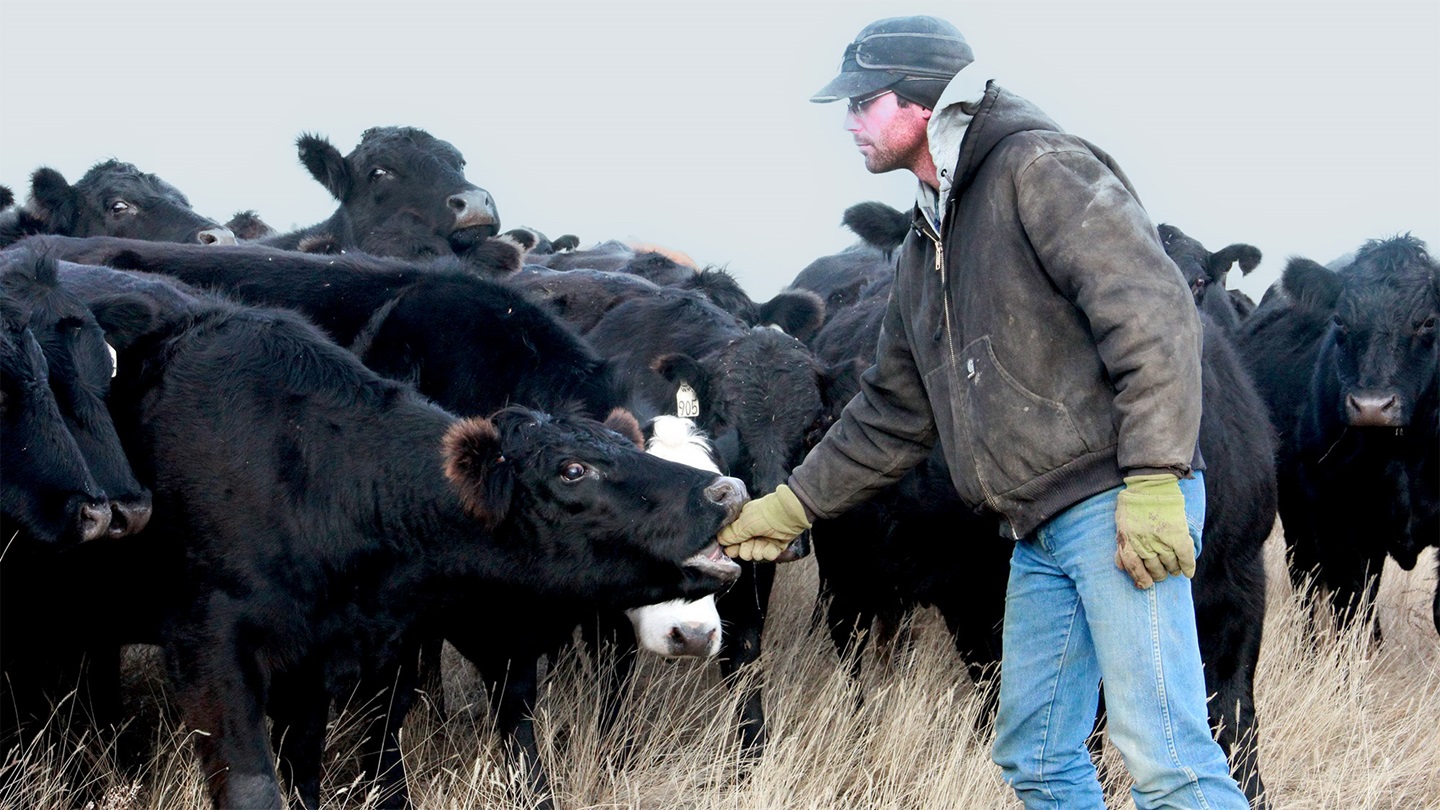South Dakota Ranchers Experience the Impossible
They have been managing their land the same way for the last 114 years. In 2024, they were criminally indicted for it.
May 21, 2025

Despite having no intent for wrongdoing and simply managing their Forest Service ground the same way the Maude family has for a century, the Maudes say they have experienced nothing short of a miracle in having their criminal indictments dropped. [Photo by Elsie Fortune Photography.]
Spring is arguably the busiest time on any ranch family’s calendar. There are cattle to tend, crops to plant, fences to mend, and if you’re Charles and Heather Maude, there’s surprise criminal indictments to fight.
On June 24, 2024, U.S. Forest Service (USFS) Special Agent Travis Lunders knocked on the Maude’s front door in Caputa, S.D., where they live with their children, ages 10 and 8. He served them with separate criminal indictments for theft of government property — much to their surprise.
In March of that year, Lunders and Patrol Captain Jeff Summers contacted the Maudes about a “No Trespassing” sign on a fence. The Maudes own a USFS grazing permit and private property adjacent to USFS ground.
“We had to sit down with our children and explain to them what was going on and explain to them what was going to happen should we end up in jail.”
— Heather Maude
“They said a hunter had turned in a no trespassing sign on a section of fence that was not on the actual boundary line on the west side of our private property and U.S. Forest Service allotment,” recalls Heather. Looking into the situation, Lunders determined that the east fence may not be on the boundary either. According to the Maude’s, Lunders’ approach was that there might be a boundary issue. Some of the ground in question was being farmed. There was nothing to show that Maudes were in the wrong. He just needed to gather more information.
Charles’ great-great-grandfather had been on the land in question since 1910. Using old pictures and old USFS documents, the Maudes’ best guess is that the east fence was built in the late 1940s. It hasn’t been moved since. Charles’ grandfather put in the west fence in 1994. The Maude family and the USFS had never had any disputes over the fence or the boundaries for more than 100 years, until March 2024.
“In the West, fences are put in practical locations. This is rough terrain. You put a fence where you can both build it and maintain it,” explains Heather, noting that Maudes owned approximately 20 acres on the USFS side of the fence in question, while the USFS owned approximately 25 acres on Maude’s side of the fence.
What the Maudes initially deemed a cordial, information-seeking encounter with Lunders quickly became a nightmare.

The Maudes received handwritten notes of support in the mail regarding their criminal indictments. [Photo courtesy of Maude family.]
During a meeting with USFS District Ranger Julie Wheeler and Lunders on May 1, Charles and Heather suggested a survey to locate the actual boundary, followed by a land trade, with whomever needed to write a check to the other party for the difference. Wheeler said she had resolved a very similar situation and noted three possible resolution options.
Some boundary markers were missing due to the river changing course over the years, and none were visible. Maudes wondered if Lunders was using onX Hunt to determine property lines. A GPS hunting app that provides users with private and public property line overlays on satellite image maps — a resource quite short of solid evidence.
“We felt guilty until proven innocent for a year.”
— Charles Maude
At the May 1 meeting, Wheeler said it could take up to a year to complete a survey, says Heather. However, Lunders showed up with a survey crew five days later, on May 6.
Lunders’ readiness spooked the Maudes. This didn’t feel like information gathering anymore, so they contacted U.S. South Dakota Senator Mike Rounds. His office staff felt something was off and wanted to attend the next meeting. Heather reached out to Wheeler to reschedule a meeting, accommodating everyone’s schedule. After initially saying her schedule was full for several weeks, Wheeler ceased returning any attempts at communication made by the Maudes.
On June 24, the Maudes hadn’t seen the land survey results. They had no idea two separate criminal indictments were coming. Why was Heather indicted separately from Charles?
“We may never know,” responds Heather. “My name is not on the deeded acres we own adjoining our [forest] allotment. My name is not on our allotment. Charles owned that Forest Service permit before we were married. They went after not only the allotment owner, the adjoining private property owner, but they also went after, from my perspective, the family — the wife and the mother.”

Charles and Heather Maude raise Angus-Simmental-cross cattle on public and private land near Caputa, S.D. [Photo courtesy of Maude family.]
The Maudes had one week before the court hearing on July 8 to obtain separate criminal attorneys and complete a conservatorship agreement for their children, in case they were put in jail at the hearing.
“That week was probably the hardest week that we experienced. We had to sit down with our children and explain to them what was going on and explain to them what was going to happen should we end up in jail,” relates Heather.
They weren’t jailed, but they did have their right to bear firearms revoked; they were told they couldn’t talk to each other about the case, and their attorneys cautioned them against speaking to the press.
“We felt guilty until proven innocent for a year,” Charles describes, “But we knew we weren’t guilty. There was no intent on our part to commit a crime. These management practices, the fence locations, everything has been in place since well before we were both born.”
For the rest of that year, Charles ran the ranch, and Heather educated herself on every aspect of the charges, followed up on every tip and lead she got from friends, family and industry about someone who might help. The Maude’s celebrated President Trump’s election and hoped a change in administration could help their cause. Rounds stayed engaged, and U.S. Representative Harriet Hageman from Wyoming joined the fight, as did every agriculture industry group in South Dakota and several national organizations.
Eventually, Heather was told she needed to reach out to Brett Tollman. Once Tollman and Heather visited, he was on board and wanted to help. Within two weeks of Tollman becoming one of their attorneys, Secretary of Agriculture Brooke Rollins, who had been following the case but hadn’t yet engaged, had the criminal charges dropped on April 28, 2025.
“You have basically accomplished the impossible.”
— Brett Tollman
On the way to a Washington, D.C., USDA press conference with Rollins, Charles recalls Tollman telling them, “‘I don’t know that you two understand what you have accomplished here. Only 5% of criminal cases are ever dismissed. You have basically accomplished the impossible.’”
The Maudes’ fight isn’t over. A looming civil case awaits them, but they give all the glory to God for seeing them through what may be the toughest ordeal of their lives.
“He prepared us for this. This has been the exact same situation for 114 years, and he prepared us to walk through this, and He brought us the people, and He gave us an impossible situation, then He gave us a nearly impossible solution. This entire time, we have both recognized that while this is important for Charles and Heather Maude, this is a huge precedent-setting issue for agriculture and private property rights and public grazing as a whole, and we’re just so relieved and blessed to see that outcome.”
Editor’s note: Paige Nelson is a freelance writer and cattlewoman from Rigby, Idaho.
Angus Beef Bulletin EXTRA, Vol. 17, No. 5-B
Topics: Policy , Success Stories , News
Publication: Angus Beef Bulletin


